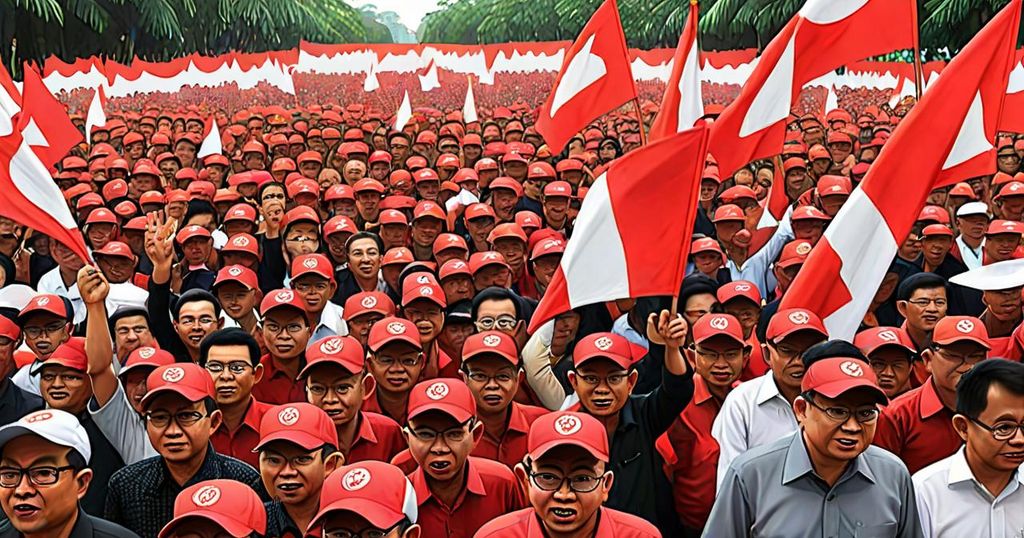In the aftermath of Indonesia’s recent presidential election, the country’s political landscape remains characterized by tension and complexity. The election has brought to light significant developments that provide valuable insight into the changing dynamics within Indonesia’s political establishment and civil society.
The presidential campaign and its outcome have highlighted two primary areas of tension. The first revolves around the complex web of personal ambitions within the political establishment, while the second pertains to the delicate balancing act faced by civil society in its relationship with the political elite. Despite the election results, these tensions continue to be prominent. However, new layers of complexity have emerged, offering a fresh perspective on the current state of Indonesian politics.
A significant outcome of the election has been the emergence of a three-way tension within the political establishment. This new dynamic has revealed diverging paths of ambition among president-elect Prabowo Subianto, outgoing president Joko Widodo, and his family, as well as the Indonesian Democratic Party of Struggle (PDI-P) led by Megawati Sukarnoputri. The evolving landscape of political ambitions among these key players will undoubtedly impact the future trajectory of Indonesian politics.
Furthermore, the attempt by the Workers’ Party (Partai Buruh, PB) to position itself as a representative of specific segments of civil society has faltered, as evidenced by its underwhelming performance in the election. This setback has given rise to heightened tensions among those who view the PB as a nucleus for an ideologically driven social democratic opposition group and those who perceive it as an alliance with vested interests within the political establishment. Despite this, civil society organizations operating outside the PB have persisted in their endeavors post-election, signaling their enduring influence in shaping the country’s sociopolitical landscape.
In light of these developments, an upcoming seminar aims to explore the intersection between civil society and the mainstream forces outside of Prabowo’s coalition. The seminar will provide valuable insights into the evolving relationship between civil society and the broader political forces at play in Indonesia.
The seminar will feature Dr. Maxwell Lane, a distinguished Visiting Senior Fellow at ISEAS – Yusof Ishak Institute in Singapore. Dr. Lane brings a wealth of expertise to the discussion, drawing from his extensive background as a journalist, researcher, human rights activist, and lecturer. His profound understanding of Indonesian politics and society makes him a highly anticipated speaker for this seminar.
The event will be a hybrid, with participants having the option to attend in person at ISEAS or virtually via webinar. Registration is now open, and seats are limited, so early registration is advised for those planning to attend in person. Virtual participants can also secure their spot by registering for a unique login link to access the webinar on the specified date and time.
As the dust settles after the elections, the landscape of Indonesian politics continues to evolve, presenting new possibilities and challenges. The upcoming seminar promises to offer valuable insights into the post-election nuances shaping the country’s political future, making it a must-attend event for anyone interested in Indonesian politics and society.

Leave a Reply